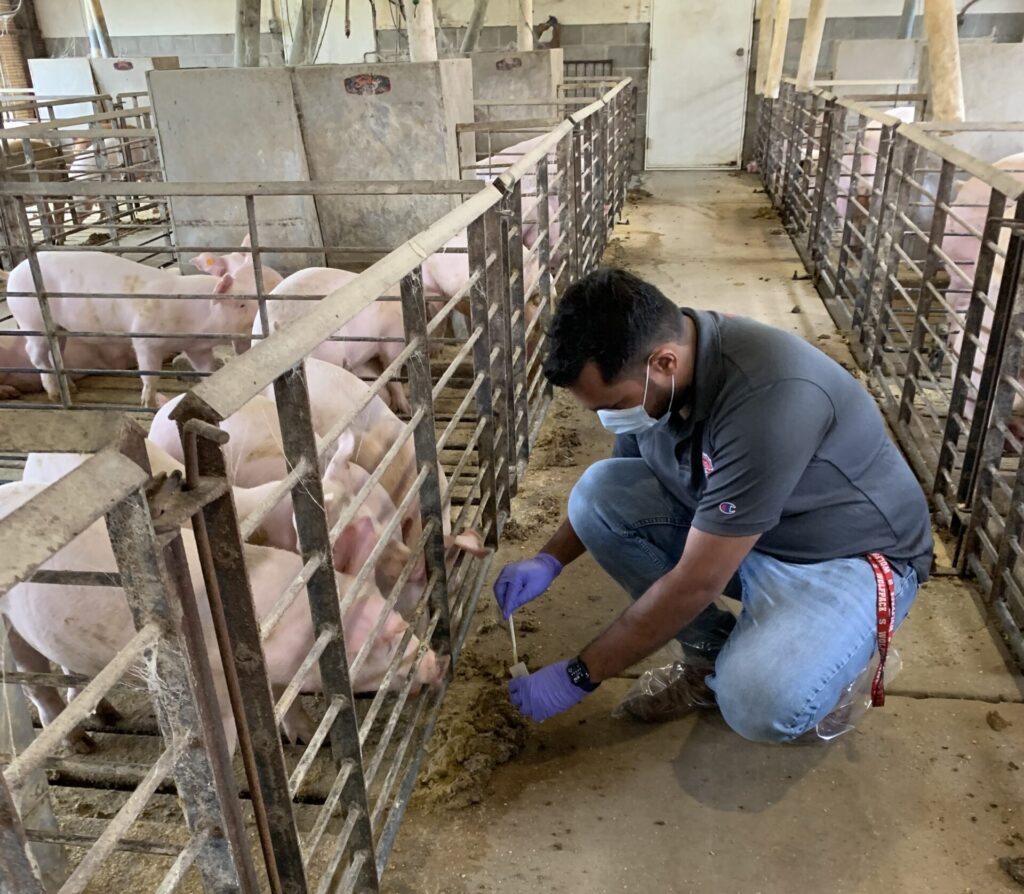 People often talk about water quality in reference to the water we drink, but we forget about the quality and safety of other water sources in our lives like recreational water. Tanvir Pasha is a doctoral student at NC State who is working to ensure the safety of North Carolinians enjoying the great outdoors. His interest in water quality began surprisingly with a hurricane.
People often talk about water quality in reference to the water we drink, but we forget about the quality and safety of other water sources in our lives like recreational water. Tanvir Pasha is a doctoral student at NC State who is working to ensure the safety of North Carolinians enjoying the great outdoors. His interest in water quality began surprisingly with a hurricane.
Pasha came to NC State’s Global WaSH Cluster in 2019 to study environmental engineering with a focus on microbial contaminants. Before coming to NC State, he earned his bachelor’s degree in civil engineering from the Military Institute of Science and Technology in Dhaka, Bangladesh and a master’s degree in environmental engineering at the University of Texas at San Antonio.
As a master’s student in 2017, Pasha led a research project funded by the National Science Foundation following one of Texas’s most devastating storms, Hurricane Harvey. “My project checked the contamination in the surface waters due to flooding,” Pasha said. “We collected the river water samples near Victoria, Texas and tested for E. coli. We also identified human sewage contamination from overflowing facilities, like wastewater treatment plants or animal feeding operations. That was the first time I got really excited working in this field and really contributing to society.”

Pasha wanted to continue his passion in research and found Dr. Angela Harris’s lab in the department of civil, construction and environmental engineering. “Her research profile fascinated me,” Pasha said. “When Hurricane Florence happened, Dr. Harris collaborated with professors across NC State to study watershed contamination. She conducted a study focusing on microbial contamination of watershed across coastal North Carolina.”
Now part of the Harris lab, Pasha is exploring other facets of water quality, expanding his expertise into recreational use. His doctoral project, which is funded by the Water Resources Research Institute, examines antibiotic resistance genes in E. coli in the Neuse and Cape Fear River. The study ultimately aims at identifying sources of contamination and understanding if these rivers are safe for activities like fishing or swimming.
After he earns his Ph.D., Pasha would like to work in low- and middle-income countries to continue molecular source tracking research. Countries like Bangladesh, Kenya, and Uganda suffer from a lack of safe potable water sources, leaving a large need to identify and prevent water contamination for improved communal health.